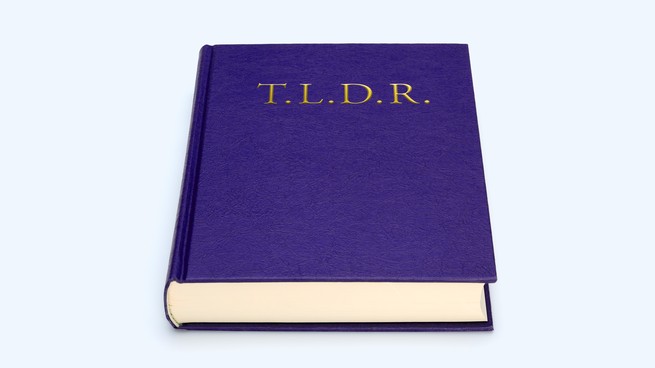Go Ahead, Put Down That Book
4 min read
This is an edition of the Books Briefing, our editors’ weekly guide to the best in books. Sign up for it here.
This week, Sophie Vershbow asked English teachers, librarians, writers, and readers when it’s okay not to finish a book. My answer to that question is: almost always, unless you’re writing a review of it; in that case, please read it from cover to cover. You might think that, as a book-review editor, I’d have a completist attitude toward reading. In reality, I tend to drop books early and often.
First, here are four new stories from The Atlantic’s books section:
- When wellness can’t bring happiness
- How poetry can map defiance
- “Shore Birds,” a poem by W. S. Merwin
- Who’s normal now?
My approach to reading is partly due to the fact that, given the number of titles I need to check out every month for my job, I just don’t have time to finish everything I start. But it’s also a philosophical choice, one that’s guided by a view of the written word as something to luxuriate in. “For a lot of people, the act of spending time with literature is more important than finishing any one book,” Vershbow observed. That sentiment resonated with me: Some of my most meaningful reading experiences have involved treating the book more as a work of art to commune with than a task to complete.
I often find that I can prematurely part ways without angst even with a volume I’m thoroughly enjoying; I know that if I’m meant to finish it, I’ll find my way back eventually. Of course, if I want to recommend a book widely or rave about it on the internet, I need to complete it, in case the story takes an unexpected turn or something happens in the last few pages that changes my perspective. The same rule applies if I feel like hating. “Not finishing a story weakens your ability to properly assess it,” Vershbow advises. “It’s fine to abandon a title, but if you do, keep the strong opinions to a minimum.”
Not long ago, one of my colleagues told me about a rule her friend’s mother’s book club follows, and I’ve been sharing it with friends when they admit that they’re struggling through this or that beloved title: Subtract your age from 100, and you’ll end up with the number of pages you need to read before dropping a book. Only 20 years old? You’ll need to read 80 pages before you can move on. But if you’re 90, you need to read only 10. By that age, you’ve earned the right not to spend a second of your time on something that doesn’t bring you joy.

When Is It Okay to Not Finish a Book?
By Sophie Vershbow
How to decide to put down a book—without all the angst
Read the full article.
What to Read
Song of Solomon, by Toni Morrison
Morrison’s 1977 novel—her third, and the one that really established her literary reputation—is centered on Milkman Dead, a young man living in the Midwest and feeling lost and rudderless. Inspired by a family legend about a buried bag of gold, he leaves home and embarks on a classic hero’s journey, though his is set within the cultural frame of the Black American experience. As Milkman moves deeper into the South, reversing his family’s migration, he encounters figures both mythic and prosaic and defends himself against mortal dangers. Gradually, he realizes that he’s searching not for the treasure, but for clues to his own identity. The novel reads a bit like a detective story: Milkman must piece together scraps of nursery rhymes, local folk tales, mysterious place-names, and riddles. In the glorious moment when he finally succeeds, he is freed from his illusions about himself and his history. Morrison’s gorgeous prose makes you want to leap along with him, “as fleet and bright as a lodestar,” into the clear, sweet air of self-knowledge. — Pamela Newton
From our list: Eight books that will change your perspective
Out Next Week
📚 Christopher Isherwood Inside Out, by Katherine Bucknell
📚 Foreign Agents, by Casey Michel
📚 My Child, the Algorithm, by Hannah Silva
Your Weekend Read

She’s Everything. He’s Just Doug.
By Helen Lewis
The politics of gender—and race—are the inevitable backdrop to this year’s convention. During the honorary roll call on Tuesday night, several delegates mentioned their pride at nominating a woman of color. During the speeches, Shirley Chisholm’s name was regularly invoked, as the first woman and first Black American to seek the presidential nomination from one of the two major parties. In the corridors of the United Center, delegates could buy sugar-pink “Madam President” T-shirts. “Sixty years ago, Fannie Lou Hamer came to this convention in 1964, and was denied entry to sit as a delegate, because she was a Black woman,” the actor Wendell Pierce, who came with the Louisiana delegation, told me on the convention floor. “To think that 60 years later, we just nominated a Black woman to lead the party—that is a tribute to that legacy.”
Read the full article.
When you buy a book using a link in this newsletter, we receive a commission. Thank you for supporting The Atlantic.
Explore all of our newsletters.



